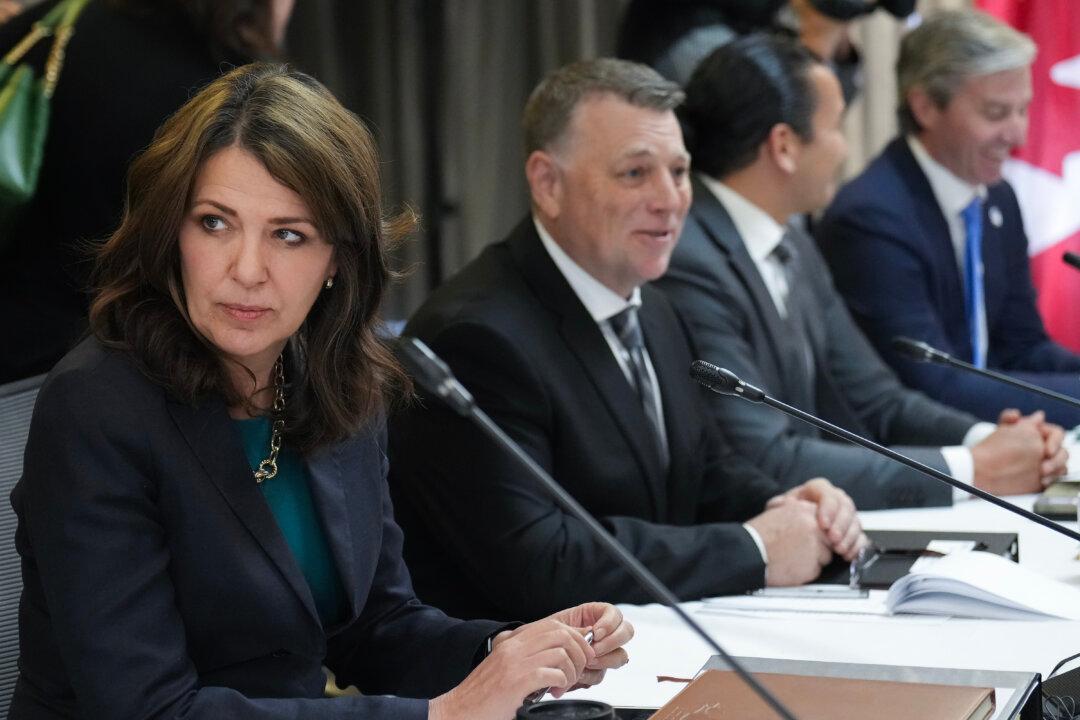Alberta Premier Danielle Smith says her province isn’t signing on to a joint statement by the prime minister and the premiers in response to U.S. tariffs because she doesn’t want to see energy exports cut as part of a possible retaliatory response.
Smith made the comments in a Jan. 15 social media post, while Canada’s other first ministers held a press conference following a meeting to discuss the country’s response to U.S. President-elect Donald Trump’s looming tariffs. Smith participated in the meeting virtually, but did not attend the closing media briefing or sign the joint statement.





